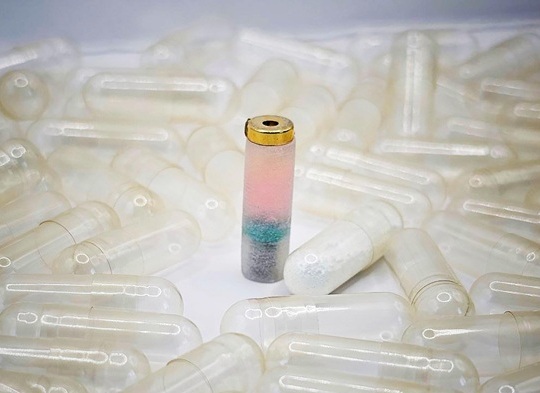New COVID-19 Immunity Study Finds Majority of Coronavirus-Infected People Retain Antibodies for Over Six Months
|
By HospiMedica International staff writers Posted on 22 Dec 2020 |

Illustration
A new COVID-19 immunity study has found that a very large share of people infected with coronavirus in the spring still had detectable antibodies six months later.
The study by the Finnish Institute for Health and Welfare (THL; Helsinki, Finland) aimed to find out how long the antibodies last in SARS CoV2 virus infected persons, and thus also to assess the duration of possible protection. A previous study by THL and the City of Helsinki had found that nearly all those infected with coronavirus (63/64) formed antibodies, which also remained for a period of four months in most of the participants.
The follow-up study for the serological population study of the coronavirus epidemic began in October. People aged 18 or over, who had a coronavirus infection confirmed by PCR-testing in the spring at least six months prior, were invited to take part in the study. The first blood samples were taken in early November. To date, 1,164 subjects from five different hospital districts have participated in the study. A microneutralization test developed at THL was utilized in the antibody study. The microneutralization test measures antibodies that neutralize the virus. Thus far, these antibodies have been found in 792/867 subjects (91%) in the follow-up study. The THL study found neutralizing antibodies in all 129 COVID-19 patients who had been hospitalized.
Other recent studies have also shown that neutralizing antibodies persist in a large proportion of those infected, despite a decrease in total antibodies in the months following infection. Coronaviruses that cause severe infections, such as SARS and MERS, can produce antibodies that persist for several years. The neutralizing antibodies formed in infected persons are likely to provide protection against symptoms or severe symptoms of a new infection, as evidenced by animal experiments. However, it is not yet known which amount of antibodies is sufficient to protect a person from an infection or how long the protection will last.
"The fact that antibodies persist in such a large proportion of those infected for a long time is a promising finding, and, in particular, the persistence of neutralizing antibodies can mean longer-term protection from new infection," said THL's Research Manager Merit Melin.
"Our observation that neutralizing antibodies persist in most people for more than six months after infection also increases optimism about the long-term protection provided by vaccines," added THL's Research Manager Arto Palmu.
Related Links:
Finnish Institute for Health and Welfare (THL)
The study by the Finnish Institute for Health and Welfare (THL; Helsinki, Finland) aimed to find out how long the antibodies last in SARS CoV2 virus infected persons, and thus also to assess the duration of possible protection. A previous study by THL and the City of Helsinki had found that nearly all those infected with coronavirus (63/64) formed antibodies, which also remained for a period of four months in most of the participants.
The follow-up study for the serological population study of the coronavirus epidemic began in October. People aged 18 or over, who had a coronavirus infection confirmed by PCR-testing in the spring at least six months prior, were invited to take part in the study. The first blood samples were taken in early November. To date, 1,164 subjects from five different hospital districts have participated in the study. A microneutralization test developed at THL was utilized in the antibody study. The microneutralization test measures antibodies that neutralize the virus. Thus far, these antibodies have been found in 792/867 subjects (91%) in the follow-up study. The THL study found neutralizing antibodies in all 129 COVID-19 patients who had been hospitalized.
Other recent studies have also shown that neutralizing antibodies persist in a large proportion of those infected, despite a decrease in total antibodies in the months following infection. Coronaviruses that cause severe infections, such as SARS and MERS, can produce antibodies that persist for several years. The neutralizing antibodies formed in infected persons are likely to provide protection against symptoms or severe symptoms of a new infection, as evidenced by animal experiments. However, it is not yet known which amount of antibodies is sufficient to protect a person from an infection or how long the protection will last.
"The fact that antibodies persist in such a large proportion of those infected for a long time is a promising finding, and, in particular, the persistence of neutralizing antibodies can mean longer-term protection from new infection," said THL's Research Manager Merit Melin.
"Our observation that neutralizing antibodies persist in most people for more than six months after infection also increases optimism about the long-term protection provided by vaccines," added THL's Research Manager Arto Palmu.
Related Links:
Finnish Institute for Health and Welfare (THL)
Latest COVID-19 News
- Low-Cost System Detects SARS-CoV-2 Virus in Hospital Air Using High-Tech Bubbles
- World's First Inhalable COVID-19 Vaccine Approved in China
- COVID-19 Vaccine Patch Fights SARS-CoV-2 Variants Better than Needles
- Blood Viscosity Testing Can Predict Risk of Death in Hospitalized COVID-19 Patients
- ‘Covid Computer’ Uses AI to Detect COVID-19 from Chest CT Scans
- MRI Lung-Imaging Technique Shows Cause of Long-COVID Symptoms
- Chest CT Scans of COVID-19 Patients Could Help Distinguish Between SARS-CoV-2 Variants
- Specialized MRI Detects Lung Abnormalities in Non-Hospitalized Long COVID Patients
- AI Algorithm Identifies Hospitalized Patients at Highest Risk of Dying From COVID-19
- Sweat Sensor Detects Key Biomarkers That Provide Early Warning of COVID-19 and Flu
- Study Assesses Impact of COVID-19 on Ventilation/Perfusion Scintigraphy
- CT Imaging Study Finds Vaccination Reduces Risk of COVID-19 Associated Pulmonary Embolism
- Third Day in Hospital a ‘Tipping Point’ in Severity of COVID-19 Pneumonia
- Longer Interval Between COVID-19 Vaccines Generates Up to Nine Times as Many Antibodies
- AI Model for Monitoring COVID-19 Predicts Mortality Within First 30 Days of Admission
- AI Predicts COVID Prognosis at Near-Expert Level Based Off CT Scans
Channels
Critical Care
view channel
AI Heart Attack Risk Assessment Tool Outperforms Existing Methods
For decades, doctors have relied on standardized scoring systems to assess patients with the most common type of heart attack—non-ST-elevation acute coronary syndrome (NSTE-ACS). The GRACE score, used... Read more
'Universal' Kidney to Match Any Blood Type
Blood-type incompatibility has long been one of the greatest obstacles in organ transplantation, forcing thousands of patients—particularly those with type O blood—to wait years longer for compatible donors.... Read moreSurgical Techniques
view channel
Minimally Invasive Endoscopic Surgery Improves Severe Stroke Outcomes
Intracerebral hemorrhage, a type of stroke caused by bleeding deep within the brain, remains one of the most challenging neurological emergencies to treat. Accounting for about 15% of all strokes, it carries... Read more
Novel Glue Prevents Complications After Breast Cancer Surgery
Seroma and prolonged lymphorrhea are among the most common complications following axillary lymphadenectomy in breast cancer patients. These postoperative issues can delay recovery and postpone the start... Read morePatient Care
view channel
Revolutionary Automatic IV-Line Flushing Device to Enhance Infusion Care
More than 80% of in-hospital patients receive intravenous (IV) therapy. Every dose of IV medicine delivered in a small volume (<250 mL) infusion bag should be followed by subsequent flushing to ensure... Read more
VR Training Tool Combats Contamination of Portable Medical Equipment
Healthcare-associated infections (HAIs) impact one in every 31 patients, cause nearly 100,000 deaths each year, and cost USD 28.4 billion in direct medical expenses. Notably, up to 75% of these infections... Read more
Portable Biosensor Platform to Reduce Hospital-Acquired Infections
Approximately 4 million patients in the European Union acquire healthcare-associated infections (HAIs) or nosocomial infections each year, with around 37,000 deaths directly resulting from these infections,... Read moreFirst-Of-Its-Kind Portable Germicidal Light Technology Disinfects High-Touch Clinical Surfaces in Seconds
Reducing healthcare-acquired infections (HAIs) remains a pressing issue within global healthcare systems. In the United States alone, 1.7 million patients contract HAIs annually, leading to approximately... Read moreHealth IT
view channel
Printable Molecule-Selective Nanoparticles Enable Mass Production of Wearable Biosensors
The future of medicine is likely to focus on the personalization of healthcare—understanding exactly what an individual requires and delivering the appropriate combination of nutrients, metabolites, and... Read moreBusiness
view channel
Philips and Masimo Partner to Advance Patient Monitoring Measurement Technologies
Royal Philips (Amsterdam, Netherlands) and Masimo (Irvine, California, USA) have renewed their multi-year strategic collaboration, combining Philips’ expertise in patient monitoring with Masimo’s noninvasive... Read more
B. Braun Acquires Digital Microsurgery Company True Digital Surgery
The high-end microsurgery market in neurosurgery, spine, and ENT is undergoing a significant transformation. Traditional analog microscopes are giving way to digital exoscopes, which provide improved visualization,... Read more
CMEF 2025 to Promote Holistic and High-Quality Development of Medical and Health Industry
The 92nd China International Medical Equipment Fair (CMEF 2025) Autumn Exhibition is scheduled to be held from September 26 to 29 at the China Import and Export Fair Complex (Canton Fair Complex) in Guangzhou.... Read more








.jpg)








